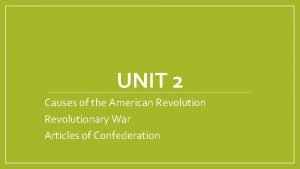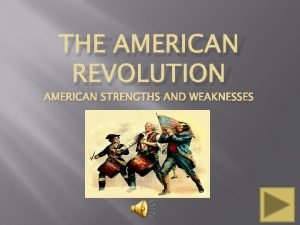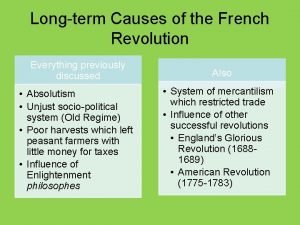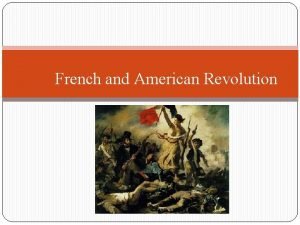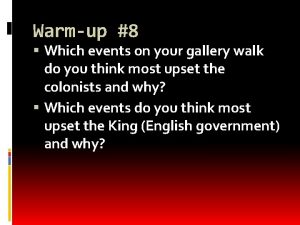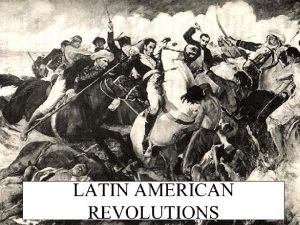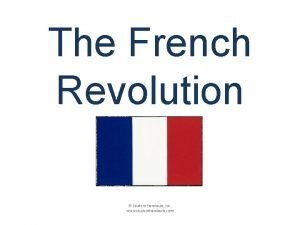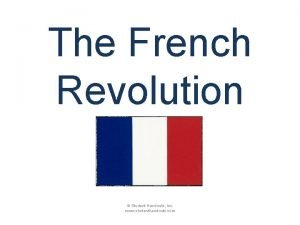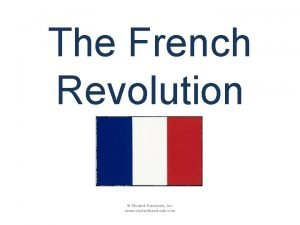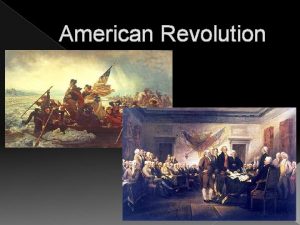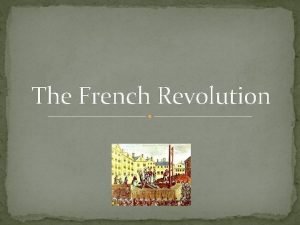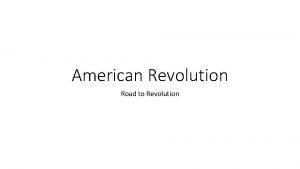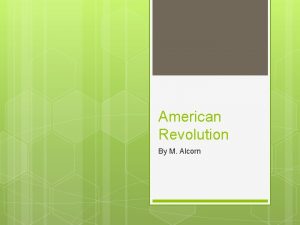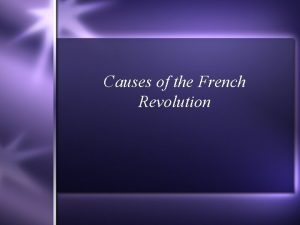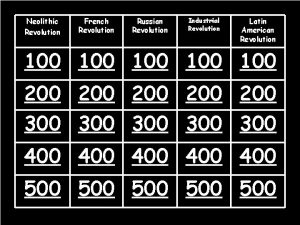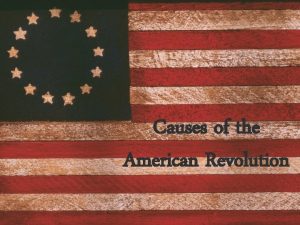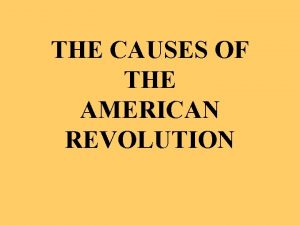CAUSES OF THE AMERICAN REVOLUTION The American Revolution















- Slides: 15

CAUSES OF THE AMERICAN REVOLUTION

The American Revolution • The American Revolution began in 1775 because of open conflicts between the thirteen colonies and Great Britain. No one event can be pointed out as to why the revolution actually began. • It is said that the war began as a disagreement in which Great Britain treated the colonies as opposed to how the colonies felt they should be treated.

• The Americans felt they deserved all rights of of English men, but the British however felt the colonies were created to be used in the way that best suited the crown and parliament.

The French and Indian War • When the Americans first started settling in the Americas they were faced with encounters from those who were already living on the colonies • This war was known as the French and Indian War. This war ended with the British being victorious. • This left the British with large debts to be paid.

• The British Government decided to make the American colonies pay a large share of the war debt from the French and Indian War sine they had not enough revenue to repay it.

EVENTS LEADING TO THE AMERICAN REVOLUTIONARY WAR

Proclamation Act • This act prohibited settlement beyond the Appalachian Mountains. While Britain did not intend to harm the colonists, many colonists took offense at this order. • They felt that since they had won the war then they saw no reason to restrict their movements as they should no longer be in any form of danger.

Sugar Act • This act raised revenues by increasing duties on sugar imported from the west indies.

Currency Act • Parliament argued that colonial currency had caused a devaluation harmful to British trade. They banned American assemblies from issuing paper bills of credit.

Quartering Act • Britain ordered that colonists were to have and feed British soldiers if necessary.

Stamp Act • This required tax stamps on many items and documents including playing cards, newspapers, and marriage licenses. Prime minister George Grenville stated that this direct tax was intended for the colonies to pay for defense.

Taxation Without Representation • The American people also thought that they should be able to send their own people to Britain’s parliament or at least vote for Britain’s lawmakers. • The combination of the harsh taxes and the lack of an American voice in parliament gave rise to the famous phrase “taxation without representation”.

Townshed Acts • These taxes were imposed to help make the colonial officials independent of the colonists, and included duties on glass, paper, and tea. Smugglers increased their activities to avoid the tax leading to more troops in Boston.

Intolerable Act • These were passed in response to the Boston tea party and placed restrictions on the colonists , including outlawing town meetings and the closing of the Boston Harbor

Points to Note • Enlightened thinkers such as Patrick Henry, Thomas Paine, and others called for an independent America, colonies free from British rule and interference. • This caused or encouraged Americans to start stock piling guns and ammunitions in violation of British laws. Their defense of such a stockpile led to the shot fired at Lexington and concord and the beginning of the Revolutionary War.
 Main causes of the american revolution
Main causes of the american revolution Causes and effects of american revolution
Causes and effects of american revolution Long term causes french revolution
Long term causes french revolution Effect of american revolution
Effect of american revolution Causes of the american revolution gallery walk
Causes of the american revolution gallery walk Latin american revolution causes
Latin american revolution causes You should hope this game will be over soon
You should hope this game will be over soon Proximate causes of behavior
Proximate causes of behavior Proximate causes vs ultimate causes
Proximate causes vs ultimate causes Why do we have seaosns
Why do we have seaosns Causes and effects of the russian revolution
Causes and effects of the russian revolution French revolution causes and effects
French revolution causes and effects Committee of public safety
Committee of public safety French revolution causes
French revolution causes Short term causes of the french revolution
Short term causes of the french revolution Causes and effects of the french revolution
Causes and effects of the french revolution
